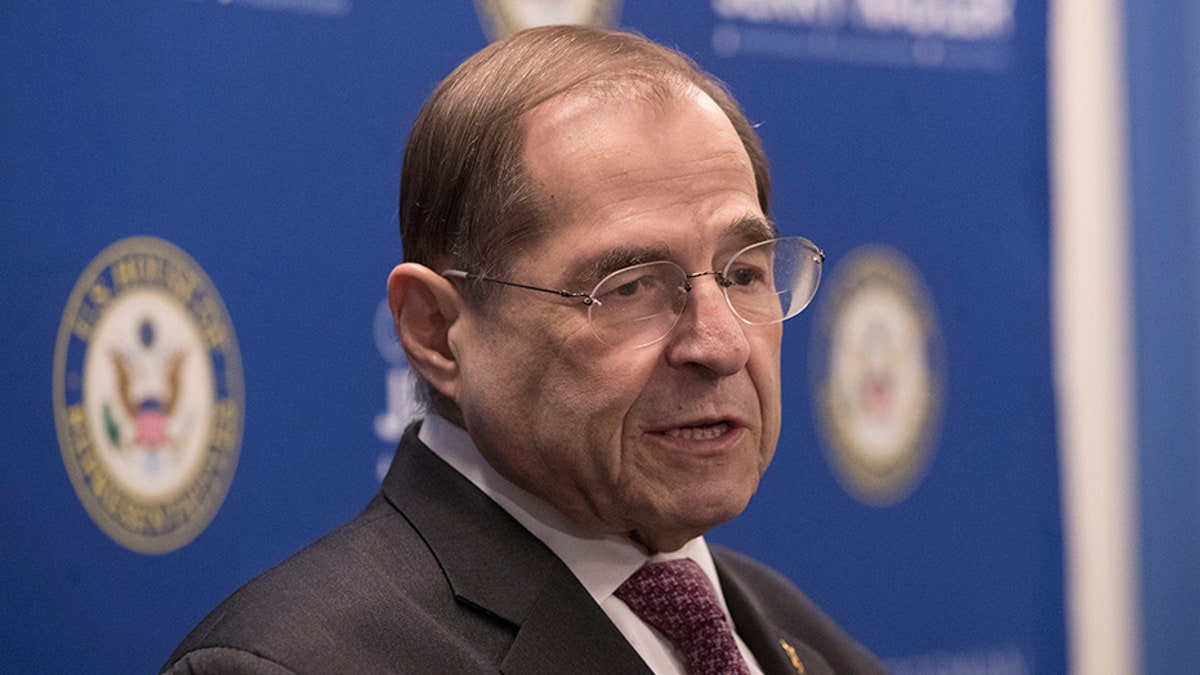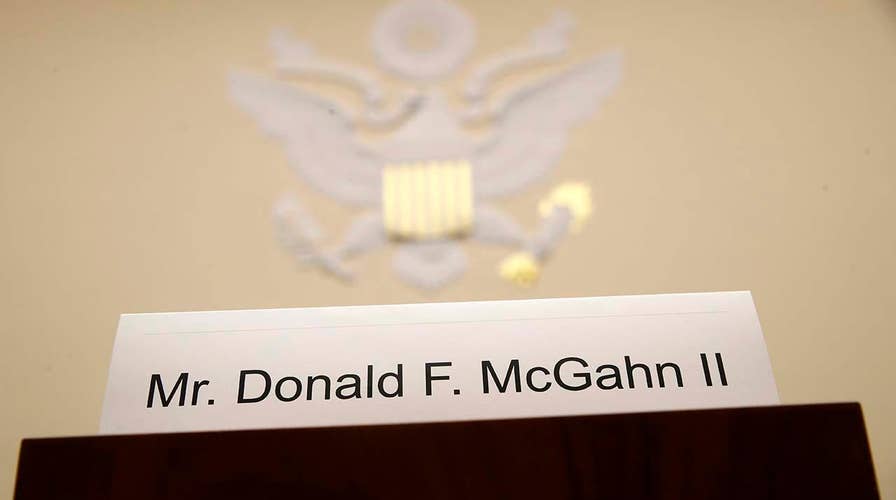Former White House counsel Don McGahn refuses to testify, skips House hearing
The Department of Justice's Office of Legal Counsel recommended McGahn skip the hearing with an opinion that he 'qualifies as a senior adviser entitled to testimonial immunity'; chief White House correspondent John Roberts reports.
Just hours after former White House Counsel Don McGahn defied a subpoena from House Judiciary Committee Democrats, the panel announced Tuesday it was issuing two new subpoenas: one for former McGahn chief of staff Annie Donaldson, and another for former White House Communications Director Hope Hicks.
The move escalated the already sky-high tensions between the White House and congressional Democrats, who have been considering possible contempt proceedings.
"As I said earlier today, the Judiciary Committee’s investigation into obstruction of justice, public corruption and abuse of power by President Trump and his Administration will continue," House Judiciary Committee Chairman Jerry Nadler, D-N.Y., said in a statement. "I have issued these subpoenas today to two critical witnesses who have worked closely with the President. We are seeking the information in order to conduct proper oversight, consider potential legislation and perform our constitutional duties."
Neither Hicks nor Donaldson immediately responded. Hicks now serves as executive vice president and chief communications officer of Fox Corporation.
The subpoenas were issued for "testimony and documents related to the House Judiciary Committee's ongoing investigation into obstruction of justice, public corruption, and other abuses of power by President Trump, his associates, and members of his Administration," Nadler's office said in a statement.
The subpoenas require Hicks and Donaldson to turn over relevant documents by June 4, and call for Hicks to testify on June 19 and Donaldson on June 24.
The subpoenas specifically request, among a slew of other materials, information from Hicks concerning the 'Republican Platform 2016' provisions relating to Russia and Ukraine, including, but not limited to, the exclusion of language related to providing lethal defensive weapons to Ukraine and the inclusion of language about providing 'appropriate assistance' to the armed forces of Ukraine."
Special Counsel Robert Mueller's report investigated the circumstances surrounding the rejection of a single delegate's amendment at the GOP platform and found no wrongdoing. The episode, nevertheless, featured prominently in the FBI's Foreign Intelligence Surveillance Act (FISA) warrant to surveil Carter Page, a former Trump aide that the FBI flatly accused of being an agent of Russia.

U.S. Rep. Jerrold Nadler, D-N.Y., chair of the House Judiciary Committee, speaking during a news conference on April 18 in New York. (AP, FIle)
Hicks is also requested to turn over information on "any loan, financing transaction, or capital investment by the Russian Federation, any Russian national, any Russian business, or any other Russian entity to the Trump Organization, Donald Trump, Ivanka Trump, Jared Kushner, or any of their Business Interests. This request shall include the period from January 1, 2015 to the present and shall exclude documents relating to the purchase of individual condominium, cooperative, or apartment units."
Donaldson was featured repeatedly in Mueller's report, largely because of notes she took around the time that Trump fired former FBI Director James Comey. “Is this the beginning of the end?" she wrote on May 9, 2017.
Mueller wrote that Donaldson penned the note “because she was worried that the decision to terminate Comey and the manner in which it was carried out would be the end of the presidency.”
The subpoenas request both Hicks and Donaldson turn over any information concerning "possible pardons for Paul Manafort, Michael Flynn, or Michael Cohen."
Hicks, too, was a close member of Trump's inner circle at key moments described in the Mueller report.
McGahn's failure to appear at a hearing on Tuesday -- like Attorney General Bill Barr's decision not to testify earlier this month -- infuriated House Democrats.
Accusing Trump of witness intimidation, Nadler said earlier in the day, “When this committee issues a subpoena, even to a senior presidential adviser, the witness must show up. Our subpoenas are not optional.”
While he did not specifically mention contempt at the time, Nadler told CNN on Monday night that lawmakers would pursue that route.
A day earlier, the president directed McGahn not to appear for the committee hearing, citing a Justice Department opinion that he cannot be compelled to testify about his official duties, the White House said.
"In short, the president took it upon himself to intimidate a witness who has a legal obligation to be here today," Nadler argued. "This conduct is not remotely acceptable."
Fox News' Alex Pappas contributed to this report.





